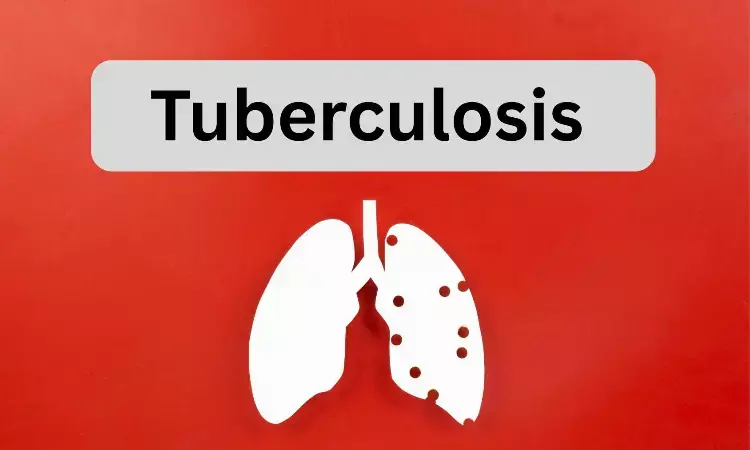- Home
- Medical news & Guidelines
- Anesthesiology
- Cardiology and CTVS
- Critical Care
- Dentistry
- Dermatology
- Diabetes and Endocrinology
- ENT
- Gastroenterology
- Medicine
- Nephrology
- Neurology
- Obstretics-Gynaecology
- Oncology
- Ophthalmology
- Orthopaedics
- Pediatrics-Neonatology
- Psychiatry
- Pulmonology
- Radiology
- Surgery
- Urology
- Laboratory Medicine
- Diet
- Nursing
- Paramedical
- Physiotherapy
- Health news
- Fact Check
- Bone Health Fact Check
- Brain Health Fact Check
- Cancer Related Fact Check
- Child Care Fact Check
- Dental and oral health fact check
- Diabetes and metabolic health fact check
- Diet and Nutrition Fact Check
- Eye and ENT Care Fact Check
- Fitness fact check
- Gut health fact check
- Heart health fact check
- Kidney health fact check
- Medical education fact check
- Men's health fact check
- Respiratory fact check
- Skin and hair care fact check
- Vaccine and Immunization fact check
- Women's health fact check
- AYUSH
- State News
- Andaman and Nicobar Islands
- Andhra Pradesh
- Arunachal Pradesh
- Assam
- Bihar
- Chandigarh
- Chattisgarh
- Dadra and Nagar Haveli
- Daman and Diu
- Delhi
- Goa
- Gujarat
- Haryana
- Himachal Pradesh
- Jammu & Kashmir
- Jharkhand
- Karnataka
- Kerala
- Ladakh
- Lakshadweep
- Madhya Pradesh
- Maharashtra
- Manipur
- Meghalaya
- Mizoram
- Nagaland
- Odisha
- Puducherry
- Punjab
- Rajasthan
- Sikkim
- Tamil Nadu
- Telangana
- Tripura
- Uttar Pradesh
- Uttrakhand
- West Bengal
- Medical Education
- Industry
BCG Revaccination Fails to Prevent TB Infection in HIV-Negative Adolescents: NEJM

A recent phase 2b clinical trial in South Africa found that Bacille Calmette-Guérin (BCG) revaccination did not prevent sustained Mycobacterium tuberculosis infection in initially uninfected, HIV-negative adolescents. These findings were published in The New England Journal of Medicine contrast with earlier signals of benefit in youth from a prior phase II trial but align with negative results seen in adults.
The study builds on a previous phase 2 trial where BCG revaccination was shown to reduce the rate of sustained tuberculosis (TB) infection, not by preventing initial infection, but by curbing its persistence, as evidenced by a series of positive interferon-γ release assays (IGRAs) known as QuantiFERON-TB (QFT) tests over a six-month period. That earlier study reported a vaccine efficacy of 45% (95% CI, 6 to 68) in preventing sustained infection, giving hope for a relatively low-cost tool in TB prevention.
However, the new randomized, double-blind, placebo-controlled trial enrolled 1,836 adolescents who tested negative on the QFT assay and were also HIV-negative. The participants were randomly assigned to receive either the BCG vaccine (918 individuals) or a placebo (917 individuals). Also, final inclusion in the vaccine efficacy analysis required a negative QFT test 10 weeks post-vaccination, to exclude participants with potential latent infections already developing at the time of vaccination.
After a median follow-up of 30 months, 62 out of 871 participants in the BCG group and 59 out of 849 in the placebo group demonstrated sustained QFT conversion, which was defined as 3 consecutive positive QFT test results at baseline, 3 months, and 6 months. The calculated hazard ratio was 1.04 (95% CI, 0.73 to 1.48), by indicating essentially no difference between the vaccine and placebo groups. This translates to a point estimate of vaccine efficacy at –3.8%, with a confidence interval ranging from –48.3% to 27.4%, suggesting no statistically significant protective effect.
While the vaccine did stimulate an immune response, particularly type 1 helper CD4 T cells producing cytokines, this did not translate into clinical efficacy. The BCG group also experienced a higher rate of adverse events, though these were primarily mild and localized injection-site reactions such as redness, swelling, pain, and occasional ulceration. Overall, these results cast doubt on the utility of BCG revaccination as a preventive measure for TB in adolescents, highlighting the need for more effective vaccine candidates.
Source:
Schmidt, A. C., Fairlie, L., Hellström, E., Luabeya Kany Kany, A., Middelkoop, K., Naidoo, K., Nair, G., Gela, A., Nemes, E., Scriba, T. J., Cinar, A., Frahm, N., Mogg, R., Kaufman, D., Dunne, M. W., & Hatherill, M. (2025). BCG Revaccination for the Prevention of Mycobacterium tuberculosis Infection. The New England Journal of Medicine, 392(18), 1789–1800. https://doi.org/10.1056/nejmoa2412381
Neuroscience Masters graduate
Jacinthlyn Sylvia, a Neuroscience Master's graduate from Chennai has worked extensively in deciphering the neurobiology of cognition and motor control in aging. She also has spread-out exposure to Neurosurgery from her Bachelor’s. She is currently involved in active Neuro-Oncology research. She is an upcoming neuroscientist with a fiery passion for writing. Her news cover at Medical Dialogues feature recent discoveries and updates from the healthcare and biomedical research fields. She can be reached at editorial@medicaldialogues.in
Dr Kamal Kant Kohli-MBBS, DTCD- a chest specialist with more than 30 years of practice and a flair for writing clinical articles, Dr Kamal Kant Kohli joined Medical Dialogues as a Chief Editor of Medical News. Besides writing articles, as an editor, he proofreads and verifies all the medical content published on Medical Dialogues including those coming from journals, studies,medical conferences,guidelines etc. Email: drkohli@medicaldialogues.in. Contact no. 011-43720751


